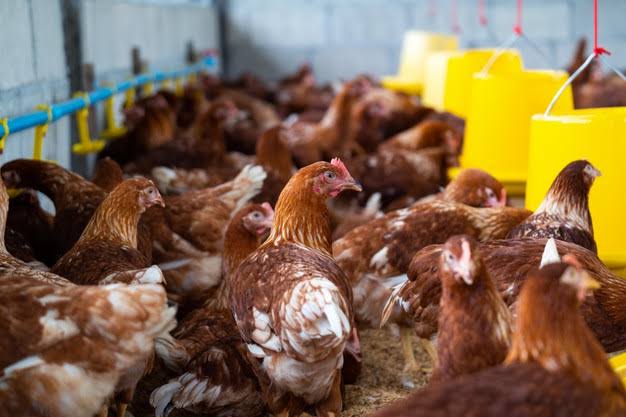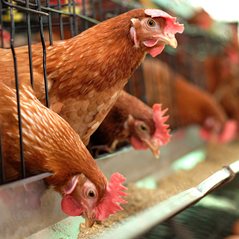Poultry theft and pilfering is an increasingly serious and prevalent problem, there are a number of ways to help protect your animals, products, and property and deter thieves. Many of these measures are simple to implement and relatively affordable, especially when compared to the cost of a burglary, so it’s certainly worthwhile. Here are six ways you can protect your farm and property from theft and break-ins.
1: Recruitment process for farm workers.
The process of recruiting farm workers should be treated with the needed attention it deserves. Many farms have ended up employing thieves from a nearby farm simply because they fail to take into account the importance of conducting a background check before staffing. The chances of employing an undeserving worker is very high if adequate back ground check is not conducted.
2: Analyse any weaknesses in your farm security
To start with, you’ll need to analyse your farm’s existing security set-up. Try to think about your land and property from the perspective of a potential thief: for instance, which animals, equipment, livestock, product or supplies are most valuable? Which are most vulnerable? Are there any weaknesses in your security system like non availability of perimeter fencing, broken fences, a compromised security personnel, flimsy gates, or unguarded access points that might be appealing to a thief? By thinking about security from this point of view, you can address the most urgent problems first.
3: Improve Pen locks and doors on the farm buildings.
Strong padlocks and deadbolts are essential on all doors to any buildings or storage units. You should also consider fitting covers to your padlocks to help stop thieves from cutting them open. It may also help to install anti-tampering devices to prevent tampering: these spray criminals with a type of ink which can be detected under a special light, marking them as the culprit.
Remember, even with the strongest lock, a door is only as strong as the hinges. If these are weak, a thief will find it easy to remove the door, so consider fitting reinforced or inverted hinges, which are much harder to tamper with. If a gate or door is not in use very often, you could also consider parking a vehicle or heavy object in front of it to obstruct access to the facility.
4: Install security cameras, alarms and lighting on the farm.
When it comes to protecting your poultry pen, farm outbuildings and other farm equipment, it’s often not enough to just have strong locks and sturdy doors: you need to make sure you have surveillance and intruder alert systems in place, too. These days, there are many cheap security camera systems that can even be viewed from the phone of the farm owner when fully connected. The doors to any buildings should be alarmed, and CCTV should be in place near vulnerable spots or access points most especially at the production pen. Installing security lighting in yards and around buildings can also help to ward off thieves and alert you to any intruders. It is worthy to note that some of this cameras should be installed in secret places with out the farm workers being aware. They will always find a way to circumvent security when they know where it is. However, you may need to remember to place signage warning thieves that your property is protected by CCTV and alarm systems, preferably around the perimeter and near any public roads. Visible deterrents like these will help make any would-be intruders think that your property is going to be more trouble than it’s worth.
5: Consider securing the perimeter.
One of the reasons thieves consider farms an easy target is because the boundaries are often open and unsecured. This is true for many farms in Nigeria either poultry or agricultural farm. Installing additional perimeter fences can help to stop intruders from accessing your land, as will thick, prickly hedges. It’s also a good idea to install higher, more robust gates to help stop thieves from breaking into yards or outbuilding areas.
Most criminals will access your farm using a foot paths, or vehicle so think in terms of blocking every footpath and preventing vehicles from driving into your facility.
Ditches can be a very effective way to stop intruders from driving into your land, although they can be time-consuming and expensive to create.
Increasingly, many farmers are turning to more high-tech forms of security, such as geo-fencing. This uses GPS to create a boundary, which triggers an alarm if a vehicle enters or exits your property. This can be a particularly useful option if your land is too extensive or sprawling for physical fences and hedges to be an option.
6: All workers must be subjected to gate search.
Most poultry theft usually take place with connivance with other farm workers. Commercial egg farms must search their workers when they close for the day at the farm gates. A lot of farm attendants steal farm eggs and other farm produces. However, some of these vices can be curbed if due diligence is carried out. On no account should farm attendants be allowed to leave the farms with kegs, containers and drugs sachet without searching the contents in these materials as many have become the medium through which eggs are siphoned out of the farm.
Farm theft is on the rise, and it’s a major source of anxiety for many farmers. Fortunately, there are a number of measures you can take to improve security, many of which are fairly simple and reasonably affordable to implement. Take these tips on board, and you should be able to ward off intruders and protect your property.
Click HERE to join our WhatsApp group


